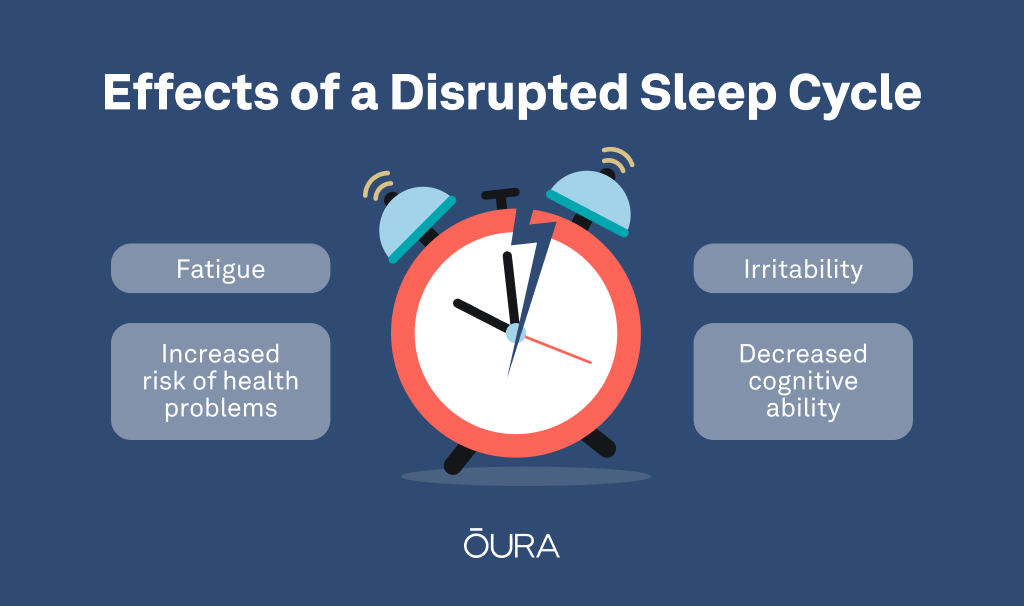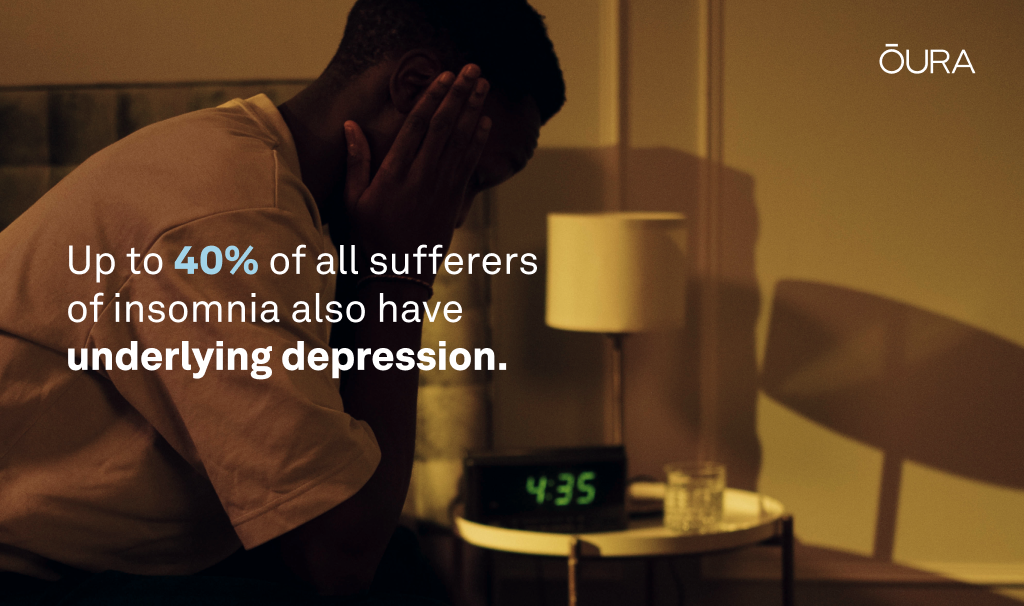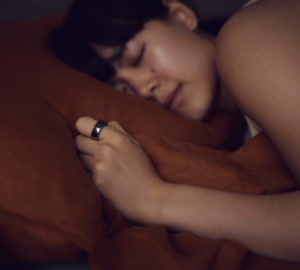To some, the idea of staying awake for an entire night seems absurd — or even torturous. However, an unfortunate myth has arisen surrounding the efficacy of pulling an all-nighter to fix your sleep schedule.
Some online community forums have propped up all-nighters as a reasonable remedy for resetting your sleep clock, on the same level as physical activity and other strategies for improving sleep hygiene. Although resetting one’s sleep cycle is a common motive behind skipping your nightly rest, there may be other reasons. About 20% of college students, for instance, decide to undergo an all-nighter at least once a month — presumably to enjoy a party or cram for an important exam.
Unfortunately, self-prescribing this misguided remedy can often result in damaging consequences to your sleep schedule that will negatively affect your physical and mental health. Below, the real science behind the all-nighter, as well as the best alternatives to help reset your sleep schedule.
RELATED: Revenge Sleep Procrastination: How ADHD Can Make You Struggle With Bedtime
What are the Effects of a Disrupted Sleep Cycle?
Our bodies are incredible feats of engineering. Inside each of us is an in-built biological clock that influences our circadian rhythms. These 24-hour cycles regulate our body’s various systems, ensuring that our internal processes are optimized at the correct time.
A prime example of this is our sleep-wake cycle. The body’s circadian cycles are predisposed to recognize light levels as the main indicator of time.
So, when we register natural light, our brain generates signals to energize us and keep us awake. On the other hand, the onset of darkness initiates melatonin production and tells our body it is time to rest.
If this cycle is disrupted through sleep deprivation, your circadian clock will falter, causing your sleep quality to drastically decline, which can lead to the following:
- Fatigue
- Irritability
- Increased risk of health problems
- Decreased cognitive ability
RELATED: The Science of Sleep: Your Circadian Rhythm & Sleep-Wake Cycle

Pulling an All-Nighter to Fix Sleep Schedule? 6 Consequences to be Aware Of
In the Short-Term:
Increased irritability and anger: Sleep deprivation can alter your mood, making you less tolerant and more easily annoyed. Unfortunately, this can cause tension and friction between you and your loved ones, leaving you feeling isolated.
Reaction times: Lack of sleep can drastically lower reaction times making everyday tasks, such as driving and manual labor, more difficult and dangerous. While we all know the dangers of drunk driving, not as many of us are aware of the risks of drowsy driving. Shockingly, over 100,000 car crashes resulting in 1,550 deaths have been linked to fatigued drivers each year.
Cognitive impairment: While you may be staying up all night desperately trying to cram in as much revision in as possible for an upcoming exam, a lack of sleep can actually be detrimental to your performance. It can cause:
- Forgetfulness
- Distractibility
- Short-term memory issues
- Sleepiness and drowsiness
All of these side effects result in your performance plummeting when you need to be at the top of your game the next day.
In the Long Run:
Weight gain: Believe it or not, staying up all night can affect your weight. Sleep deprivation is often linked to increased amounts of cortisol. This is the hormone related to stress and can cause anxiety and depression. In an effort to momentarily relieve these overwhelming feelings, a lot of people will turn to emotional eating.
On top of this, extreme tiredness will decrease your ability and desire to engage in physical activity due to a lack of energy. This increase in calorie intake, coupled with a decrease in exercise, can cause sudden and drastic weight gain. In fact, the risk of obesity increases by 15% for those who have less than 5 hours of sleep.
Cardiovascular diseases: A poor sleep cycle has been directly linked to both an increased risk in heart attacks and strokes. One study claimed that individuals who sleep for less than six hours were 20% more likely to have a heart attack.
Why? When we enter the non-REM (Non-rapid eye movement) sleep stage, our body begins to relax. This means that both our heart rate and blood pressure decrease, relieving stress from the heart. So, when an individual deprives themselves of sleep, the heart does not have enough time to recuperate.
Depression: Sleep and mental health issues have a complicated relationship. Those who suffer from anxiety and depression can find sleep unachievable due to racing thoughts and emotional suffering. It is believed that up to 40% of all sufferers of insomnia also have underlying depression.
However, a lack of sleep can also be a key influential factor in developing mental health issues. Due to the disruption caused to our body’s circadian rhythm, we become considerably more vulnerable to depression. This can create a disastrous cycle where individuals who are depressed struggle to slee,p which only intensifies their negative emotional state.

Top Alternatives To Pulling an All-Nighter to Fix Your Sleep Schedule
While it can sometimes be necessary to lose hours of sleep in cases such as traveling across time zones or a work night shift, pulling an all-nighter can have some consequences on your health, both physical and mental. Plus, the notion that an all-nighter can “reset” your internal clock is false.
Follow these tips for the perfect bedtime routine to normalize your sleep patterns.
- Focus on sleep hygiene: This includes sticking to a consistent sleep schedule, avoiding consuming caffeine before bedtime, and minimizing blue light exposure from screen time at night.
- Make some lifestyle changes: A regular workout routine to improve your physical health is an ideal method to encourage a better sleep quality.
- Get natural light: The role of light exposure is important to the quality of sleep. By exposing yourself to natural light throughout the day, especially in the morning, and limiting the amount of bright light before you sleep, your circadian rhythms will become regulated.
- Take care of your mental health: Try to implement self-care techniques, including mindfulness, meditation, and relaxation, to improve your mental wellness.
- Consider supplements: If you are experiencing recurring sleep issues, you may want to look into melatonin supplements, which contain a natural, safe hormone that our bodies produce to aid sleep. However, it is always important to consult a healthcare specialist before starting any new form of sleep medicine.
- Cool down your room: The National Institute of Health (NIH) states that the thermal environment is one of the most important factors of sleep. A good air conditioner, fan, and the right bedding are essential to combat soaring temperatures.
- See a sleep specialist: If none of these solutions seem to help reset your sleep routine, it is important to consult with a sleep specialist to solve any underlying issues.
READ MORE: 5 Ways to Upgrade Your Sleep Hygiene











